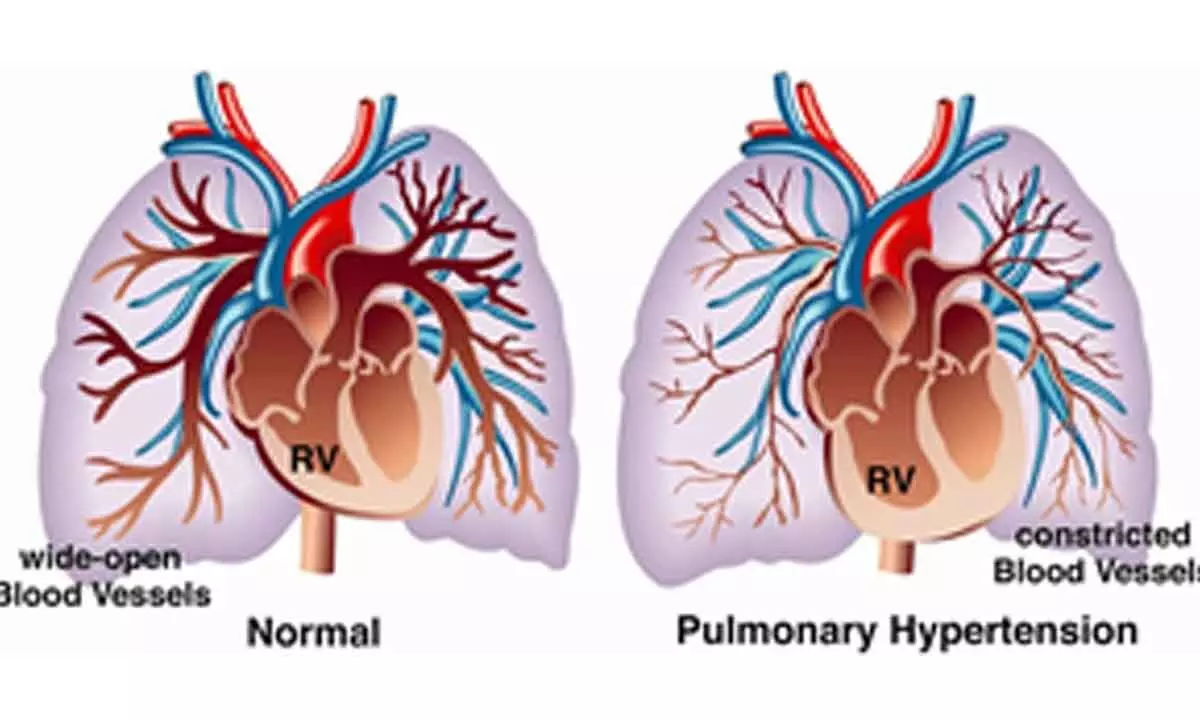Indian scientists find 4 previously overlooked genes to fight deadly lung condition
Share :

A team of scientists from the Sir Ganga Ram Hospital here has identified new genetic insights that revolutionise treatment for pulmonary arterial hypertension(PAH) - a serious and often life-threatening lung condition.
New Delhi : A team of scientists from the Sir Ganga Ram Hospital here has identified new genetic insights that revolutionise treatment for pulmonary arterial hypertension(PAH) - a serious and often life-threatening lung condition.
PAH is characterised by elevated blood pressure in the arteries of the lungs, which can lead to heart failure and reduced oxygen levels in the bloodstream.
Dr Rashmi Rana and her team from the Department of Biotechnology and Research identified four specific genes - SNORD3D, HLA_AS1, EGR1, and NPM1 - that are consistently less active in patients suffering from PAH.
"This discovery marks a crucial step forward in comprehending the underlying biological mechanisms of the disease," the researchers told IANS on Monday.
The identified genes, which had previously been overlooked, might play a critical role in the development and progression of PAH, they noted.
The findings are published in the Respiratory Medicine journal.
"Our study provides new insights into the molecular pathways involved in PAH. By focusing on these less active genes, we can explore targeted approaches to treatment and develop diagnostic tools that are more precise and effective," said Dr Rana.
Currently, PAH is notoriously difficult to diagnose and manage due to the lack of specific and reliable diagnostic methods. The condition often remains undetected until it has reached an advanced stage, making effective intervention challenging. Existing treatments focus primarily on managing symptoms rather than addressing the root causes of the disease.
The breakthrough research also offers promising new avenues for treatment. "By targeting the newly identified genes, researchers and pharmaceutical companies can develop therapies that address the underlying genetic issues of PAH, potentially leading to more effective and personalised treatments," the team said.
In addition, the discovery could lead to the creation of innovative diagnostic tests that identify PAH earlier and more accurately. "Personalised medicine, which tailors treatments to individual genetic profiles, could soon become a reality for PAH patients. This progress brings renewed hope for improved outcomes and quality of life for those affected by this challenging condition," the team said.













